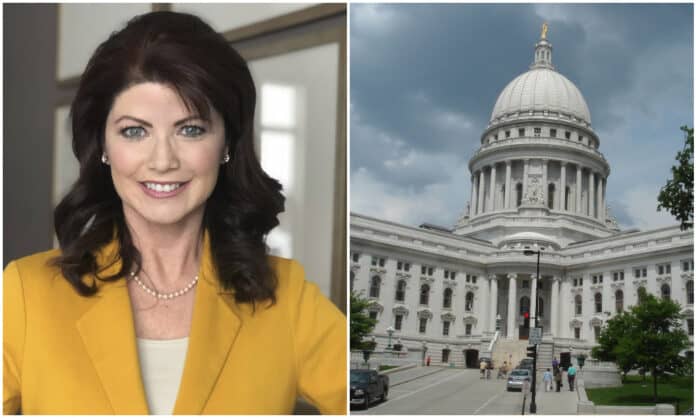Rebecca Kleefisch Opinion
I’ve spent the last year and a half meeting with folks in the construction industry across our state as part of my role with Associated Builders and Contractors of Wisconsin. I hear the same thing over and over again from Wisconsin workers: people feel like they aren’t being heard.
Little wonder that’s the case. The Governor has spent nearly a year hunkered down in Madison. Liberal protesters had to literally light Kenosha on fire to get him to venture outside Dane County. And his workforce agency let thousands of calls go to voicemail from people struggling without a regular paycheck because of the shutdown he ordered.
Whether it’s state government or political establishment, people feel like they’re being left behind by big institutions that won’t respond to regular people because they don’t seem to care about regular people. We cannot begin to restore trust in our society unless we’re meeting Wisconsinites where they are.
That means forcing institutions in Madison to branch out and see the realities the rest of the state is facing.
In the 2010s, then State Senator (now Congressman) Tom Tiffany worked overtime to pass a bill moving Wisconsin’s Forestry Division out of Madison to where it belonged, the Northwoods of Wisconsin. The move took a division of our state’s government outside the Dane County bubble, forcing bureaucrats to interact with the people they’re supposed to be serving, rather than leaving them isolated in some Madison cubicle farm.
As politicians debate the need to get government workers back into the office, we should act on a major lesson from this pandemic: if the state government can function with its state employees working from home, it can certainly function with state agencies headquartered outside of Madison.
That’s why Wisconsin’s government should focus on moving agencies out of Madison to where they fit best. The Wisconsin Department of Agriculture can be closer to real Wisconsin dairy farmers than Mickies Dairy Bar in Madison. That goes for other state agencies too, starting with the Department of Natural Resources.
Situating our agencies in and around the communities they serve will help our public servants hear directly from Wisconsin citizens who otherwise feel voiceless. It also saves taxpayers from the sky-high office costs in the City of Madison, and allows parts of the state other than Madison to benefit from the positive economic impact generated by state government.
As Republicans, we also need to take our own advice about listening to the people. We need to make sure that as a party, we’re opening offices in every corner of the state. There should never be a week that goes by where Madison lobbyists take up more time than grassroots volunteers, who are the heart and soul of our party. President Trump gave a voice to working men and women in every corner of Wisconsin. As conservatives start to think about 2022, let’s recommit to listening and learning before we unveil a whole bunch of policy proposals or white papers. Ideas need to start from the ground up and be delivered to Madison by the people, not delivered to the people by Madison.
Rebecca Kleefisch is President of 1848 Project, Inc. and Wisconsin’s former Lieutenant Governor.
Table of Contents
































